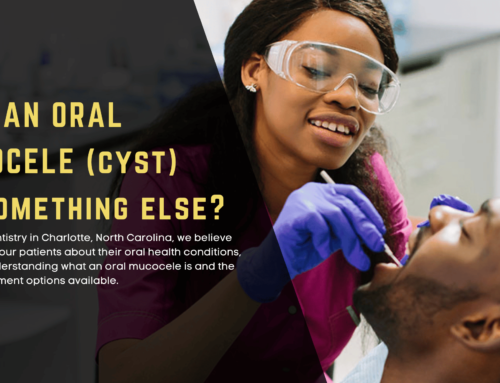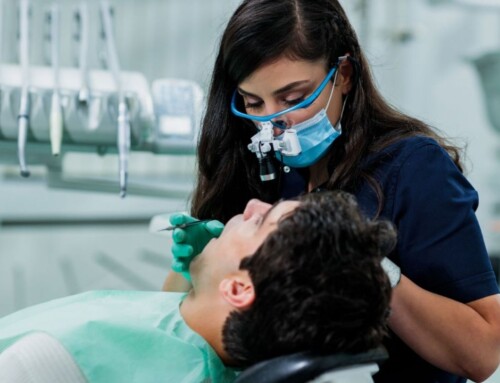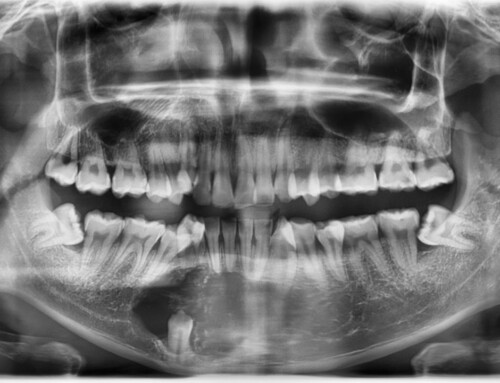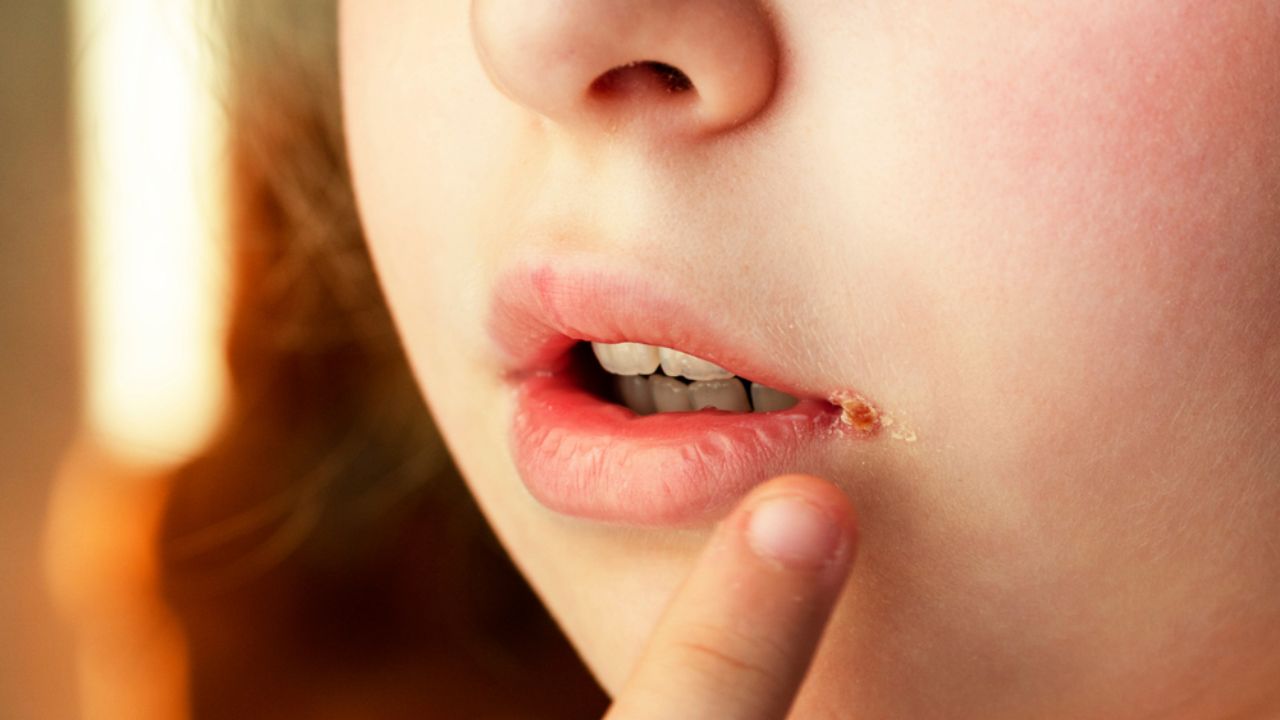
Have you ever experienced painful cracks and sores at the corners of your mouth that won’t go away? If so, you may be suffering from Angular Cheilitis. This common but often overlooked condition can cause discomfort and embarrassment, but the good news is that it’s treatable.
In this blog post, we’ll explore the symptoms and treatment options for angular cheilitis, so you can finally get relief from this frustrating condition. If you’re dealing with it, read on to learn more about this condition and how to manage it effectively.
What Is Angular Cheilitis?
Angular cheilitis, also known as perleche, is a condition that causes redness, swelling, and cracking at the corners of the mouth. This condition can be uncomfortable and painful, making eating, drinking, or talking difficult. The cracks in the skin can also bleed, leading to a higher risk of infection.
While anyone can develop angular cheilitis, it’s more common in older adults and those with weakened immune systems. It’s also more likely to occur in individuals who wear ill-fitting dentures or have a habit of licking their lips.
Is Angular Cheilitis Viral Or Bacterial?
Both bacterial and fungal infections can cause angular cheilitis. In some cases, it may also be associated with viral infections such as herpes simplex virus.
Bacterial infections can occur when the area around the mouth becomes moist and warm, providing an ideal environment for bacteria to grow. Staphylococcus aureus and Streptococcus pyogenes are two common types of bacteria that can cause angular cheilitis.
On the other hand, Fungal infections are more likely to occur when the skin around the mouth is dry and cracked. Candida albicans is a type of yeast often responsible for fungal infections that lead to angular cheilitis.
What Is The Main Cause Of Angular Cheilitis?
The leading cause of angular cheilitis is prolonged exposure of the corners of the mouth to saliva and its digestive enzymes, resulting in eczematous cheilitis, an irritant contact dermatitis. However, other factors may also lead to angular cheilitis. Here are some causes:
- Fungal or bacterial infections
- Atopic dermatitis or eczema
- Dentures that don’t fit
- Drooling during sleep
- Misaligned teeth
- Skin allergies
- Sucking on a thumb or a pacifier
- Wearing a face mask
Fungal infection, particularly a type of yeast called Candida, is the most common cause of angular cheilitis.
Symptoms Of Angular Cheilitis
The symptoms of angular cheilitis can vary from person to person but typically include the following:
- Redness and inflammation: The skin at the corners of the mouth can become red, swollen, and inflamed.
- Cracking and fissures: The skin may crack and develop fissures, which can be painful and bleed.
- Soreness and discomfort: Angular cheilitis can cause soreness and discomfort, particularly when opening the mouth, eating, or speaking.
- Dryness and scaling: The skin around the corners of the mouth may become dry, scaly, and flaky.
- Itching or burning: Some individuals may experience itching or burning sensations in the affected area.
- Blisters or ulcers: In severe cases, blisters or ulcers may develop in the affected area.
- Crusting: The affected area may develop a yellowish or brownish crust.
How Long Do Angular Cheilitis Last?
Mild cases of angular cheilitis typically go away within 2 weeks of beginning treatment. However, if left untreated, severe cases of angular cheilitis could cause scarring or weak, thin skin.
In some instances, angular cheilitis can persist indefinitely and may become chronic. If the symptoms of angular cheilitis do not clear up within 2 weeks, Dr. Mjahed recommends consulting a doctor immediately.
Angular Cheilitis Treatment Options
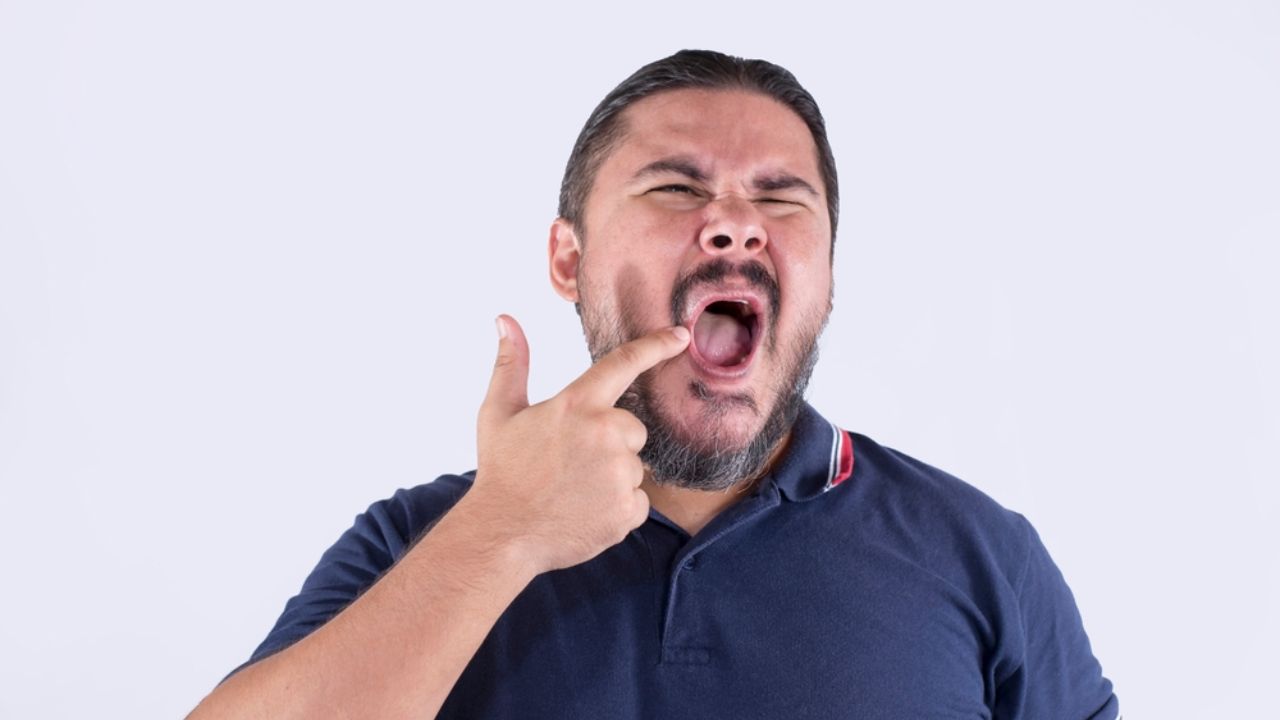
Treatment for angular cheilitis typically involves addressing the underlying cause of the condition. Here are some common treatment options:
- Antifungal or antibacterial creams: A healthcare professional may prescribe a topical antifungal or antibacterial cream if the cause of angular cheilitis is a fungal or bacterial infection.
- Nutritional supplements: If the cause of angular cheilitis is a deficiency in nutrients like iron, zinc, or B vitamins, a healthcare professional may recommend supplements.
- Topical steroid creams: In some cases, a healthcare professional may prescribe a topical steroid cream to reduce inflammation and promote healing.
- Lip balm: Keeping the lips well-moisturized with a lip balm can help prevent dryness and cracking, which can exacerbate angular cheilitis symptoms.
- Addressing dental issues: If ill-fitting dentures or other dental problems contribute to angular cheilitis, a healthcare professional may recommend addressing those issues to improve the condition.
In addition to these treatment options, there are also some angular cheilitis home remedies that may help manage symptoms. These include:
- Keeping the area clean and dry: Keeping the site around the mouth clean and dry can help prevent further irritation and promote healing.
- Applying petroleum jelly: Applying petroleum jelly to the affected area can help keep the skin moisturized and promote healing.
- Applying aloe vera: Aloe vera has anti-inflammatory properties and can help soothe irritated skin. Using aloe vera gel on the affected area may help reduce inflammation and promote healing.
- Applying honey: Honey has natural antibacterial properties and can help prevent infection. Applying a small amount of honey to the affected area may help promote healing.
Does Neosporin Help Angular Cheilitis?
There is no clear indication that Neosporin can cure or treat angular cheilitis. While it may prevent scars from forming in severe cases with large cracks, it is ineffective in healing painful and inflamed sores caused by bacterial or fungal infections.
The best medicine to help angular cheilitis is an antifungal cream, such as nystatin, which can clear the infection and prevent future infections. In addition, a low-dose topical steroid can be prescribed by a doctor to reduce inflammation and aid healing. If the underlying cause of angular cheilitis is a fungus, an OTC antifungal cream can also treat the problem.
District Dentistry – Dentist Charlotte, NC
Do you have an ill-fitted denture that is causing you discomfort? Don’t wait. Poorly fitted dentures may cause angular cheilitis and make your condition worse. Consult our Charlotte dentist, Dr. Khalil Mjahed, to help eliminate denture problems.



